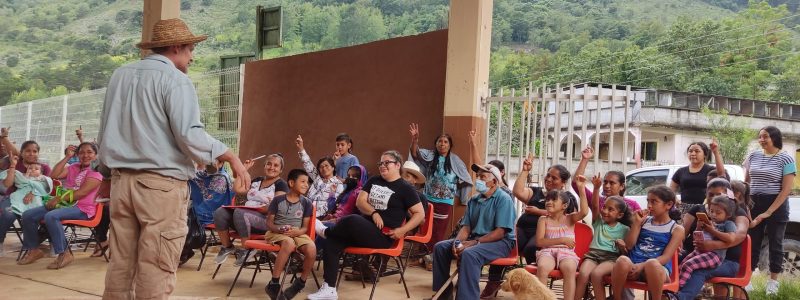“Do you want your giving to live on after you’re gone?”
For many people, this question stops them in their tracks. Estate planning often centers around family, security, and responsibility, but few think about how their generosity could become part of their legacy. When Amanda sat down with her attorney to draft her estate plan, her focus was simple: make sure her children were cared for. It wasn’t until her adviser asked a gentle question – “Do you want your giving to live on after you’re gone?” – that she paused. While she had always been generous – donating to causes she believed in and volunteering her time – she had never considered a charitable legacy as part of her plan.
Amanda’s story isn’t unique. Estate planning can feel overwhelming, with so many decisions to make and emotions to process. Legacy giving is often overlooked. A recent CAF America survey found that 75% of adults with the means to give* have no formal plans to leave part of their estate to charity. Some intend to give but haven’t made concrete plans, while less than half (44%) said they have no intention to give. When asked why, many admitted they hadn’t explored legacy giving because it didn’t feel accessible or straightforward.
Why choose legacy giving
At its core, legacy giving isn’t about reducing what you leave behind for loved ones — it’s about expanding the story of your life. It’s a way to say, “This is what mattered to me. This is how I want to be remembered.”
More than half of affluent Americans (56%) say they want to leave part of their estate to charity, and their motivations for giving are as varied as they are heartfelt:
- Personal values: 35% see generosity as simply the right thing to do.
- Belief in causes: 21% want to support a specific mission they care about deeply.
- Personal connections: 19% are motivated by ties to a cause or community.
- A sense of gratitude: 9% want to give back because of good fortune in their own lives.

So what are the most common questions or hesitations about legacy giving – and what are some perspectives that can help shift the way you think about your planning?
“I don’t know where to start.”
Like most things, getting started with legacy giving plans can be the biggest hurdle. More than a quarter of affluent adults who don’t plan to give say they’re unsure why – or admit they haven’t really thought about it before.
The truth is, legacy giving isn’t one-size-fits-all. It can be as simple as designating a percentage of your estate to a cause you care about, or setting up a flexible arrangement through organizations like CAF America that can help shape your gift in partnership with your loved ones.
“I don’t know who I want to give to.”
With thousands of worthy charities, the options can feel overwhelming. A helpful way forward is to start by thinking about causes or communities you care about. Do you want to support youth? The environment? Global communities in need? With this in mind, finding a trusted charity will be your next step. CAF America, for example, allows donors to set broad intentions to then work with you, your families, or loved ones to define goals you would like your funds to help accomplish in line with that vision.
“I don’t think I’ll have enough money.”
No gift is too small. The truth is even modest gifts can have an enormous impact. Advisers can help structure your gifts so they complement your family priorities – and demonstrate that generosity is about intention, not dollar amount.
“My family comes first in my estate plan.”
Ensuring your family is cared for and supported is a completely natural instinct.
What you may not know, however, is that charitable giving within an estate plan can actually reduce tax burdens, leaving more for heirs while still extending your generosity to others. It doesn’t have to be “family or charity.” With thoughtful planning, it can be both.
“I’ll leave any decisions to give to my heirs.”
While leaving decisions about charitable giving from your estate up to your loved ones seems flexible, it often means missed opportunities for tax benefits – and can place additional difficult emotional decisions on those left behind.
Including a legacy gift directly in your plan ensures your intentions are clearly defined, honored and your generosity becomes part of your lasting story.
“I have already been giving during my lifetime.”
Many financially comfortable adults already give during their lifetime, yet legacy gifts offer a unique opportunity to extend that impact. While lifetime donations support immediate needs, legacy gifts create an enduring footprint, sustaining the causes you care about for generations to come. By including a charitable gift in your estate plans, you can make a meaningful difference that endures far beyond today.
How CAF America can help
CAF America’s expertise in global and domestic philanthropy empowers donors to navigate the complexities of legacy giving with confidence. We partner with you and your advisers to identify the causes that matter most to you and structure legacy gifts that honor your values, reflect your family priorities, and create a meaningful difference – both at home and around the world.
Learn more about our Legacy Giving services to explore how to make legacy giving part of your estate plan.
Explore More Insights
Want to learn more about legacy giving?





